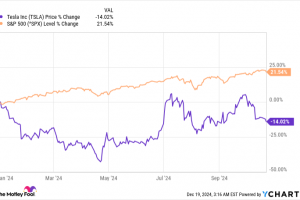
A resilient consumer has helped stave off a recession so far.VIEW press / Getty Images
Most projections for a stock market decline hinge on a weakening US consumer.
Bearish investors cite $1 trillion in credit card debt, upcoming student loan payments, and a depletion of excess pandemic savings.
But the US consumer has plenty of capacity to spend, and that’s great news for the stock market.
From $1 trillion in credit card debt to the upcoming restart of student loan payments, there are plenty of reasons to be concerned about the financial health of the US consumer.
And those concerns are getting louder and louder as some stock market strategists forecast an imminent end to the bull market, partly due to a weakening consumer who’s expected to slow spending.
But some perspective is needed, especially amid a heightened period of scary headlines that include a record high in credit card debt and the depletion of excess savings that were built up during the pandemic.
In reality, US consumers have plenty of firepower left to spend money, grow the economy, and drive the stock market higher. Here’s why.
1. Low debt-service ratio
YCharts
While $1 trillion in credit card debt sounds like a lot, what really matters is whether consumers can pay down those debts. And they most definitely can.
Less than 10% of a US households’ disposable income is going towards debt payments, which includes mortgages, auto loans, and credit card liabilities.
That’s below pre-pandemic levels and below the 10%-12% range that was consistent for much of the 2010s, when stocks were remarkably strong.
2. Consumer assets dwarf liabilities
YCharts
While consumer debts are on the rise, so too is the value of consumer assets — and the two are really not comparable.
The collective net worth of US consumers currently sits just below $150 trillion, and total assets are nearly $170 trillion, with much of that in homes and stocks. Meanwhile, consumers have total debts of just under $20 trillion, with the bulk of that represented by mortgages.
And consider this: while credit card debt grew about $100 million from…
..






